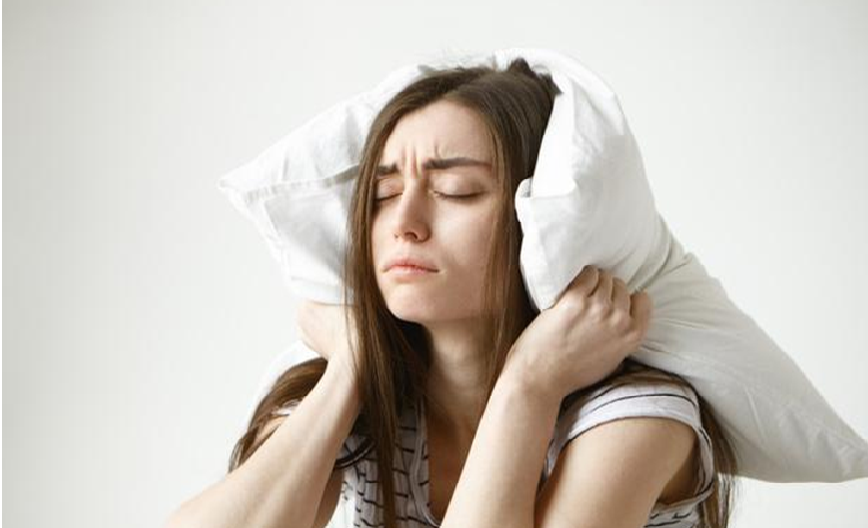
Apart from the virus, pandemic anxiety continues to plague many as everybody is worried about their safety or when all this will return to normal. This anxiety has become the root of problems which, if left unaddressed, may impact our health worse than the virus could.
Read on and check if you’re positive for any of the following—the best time to re-evaluate is now.
Sleeplessness. Anxiety can fuel difficulty falling asleep, waking up in the middle of the night, and a hard time going back to sleep. Unfortunately, the less sleep we get, the more anxious we feel. What can be done to improve sleep is to set a bedtime and try to settle into a pattern of knowing when to get some shut-eye. Alarm clocks should also be turned off to avoid unwanted sleep interruptions. Other steps to improve sleep are avoiding caffeine and alcohol intake.
Bedroom ambiance also has its share in the quality of sleep you get. To promote good sleep, keep your bedroom cool, dark, and quiet. It’s also recommended that you stay off digital screens one hour prior to going to bed as a practice of mindfulness. This keeps you away from seeing news that may bring you anxiety before sleeping.
Difficulty focusing
The pandemic continues to be a serious threat to our health, and because of it, we are constantly worried about the safety of our loved ones. Worrying can interfere in our tasks—chores at home, taking care of kids, our jobs, even our rest hours. This results in mental distractions which are further fuelled by seeing news of COVID-19 deaths. We are in an endless state of thinking about how to protect ourselves from the virus—thinking, at the expense of our focus on other matters.
For better concentration, you may eliminate less important tasks from your list and prioritize which to do first today. Schedule the important tasks and allot 45-minute breaks in between to allow yourself a breather. Now, you can check the news and social media less to avoid feeling unnecessary anxiety. Do your best to resist urges by focusing on other tasks instead.
Forgetfulness
With worries and anxiety plaguing us, a consequence that comes with it is ineffective memory. Another factor affecting this can be one’s overlapping roles at home—being a parent, a spouse, or a WFH employee—leading to disorganization of tasks and thought.
In order to improve memory, you can start with common methods such as yoga and meditation. Some health benefits that were mentioned in londonxcity.com as well as studies by psychologists in 2016 have proven that relaxing activities contribute to better memory since these engage the parasympathetic nervous system, which is a state wherein chances of uninterrupted memory is greater. Exercising and spending time in nature also helps free the mind of unwanted anxiety, leading to less forgetfulness.
Since fun is important, engaging in crossword puzzles, video games, or playing instruments are also some activities that may do wonders for existing memory impairments.
Increased irritability and anger
The pandemic-thinned patience of individuals also comes into play in our tendency of being easily irritated or angered. Cabin fever may be one of the top reasons, but studies reveal that anxiety can also be an underlying cause. It’s important to keep yourself in check to prevent lashing out on loved ones who are expected to rely on you during these tough times.
Prevent your anxiety from straining your relationships by acknowledging that anxiety before it turns into anger. When this happens, remove yourself from the situation and distance yourself from loved ones to avoid emotional collateral damage. Take a minute to breathe slowly and sort out thoughts, or picture a nice scenery to calm yourself down.
Or you can do the opposite of calming activities. Engage in a vigorous cardio exercise—run up and down the stairs to use up energy that may be used to vent out anxiety and anger. Also, remember that it’s okay if you want to talk it out with someone you trust. After all, people react significantly better to vulnerability than to anger.
There is only so much we can do for one another in these stressful times, so it’s important that we know what we can do to help loved ones and ourselves get through each day. However, if symptoms of anxiety are getting out of hand, it’s better to consult a professional to prevent spiraling down into drug abuse, depression, and alcoholism.
Feeling stressed? Check out the infographic below for tips on breaking down that stress buildup.
Infographic provided by Scottsdale Mental Health and Wellness, an Arizona online psychiatrist

